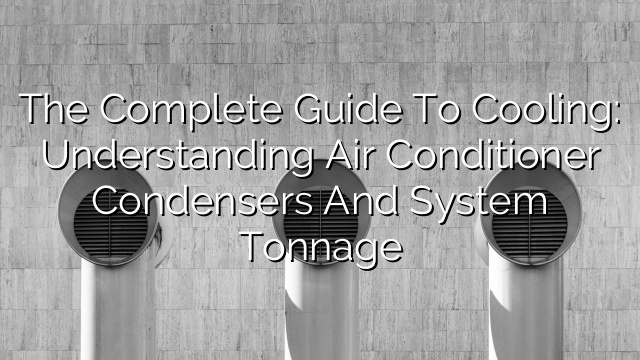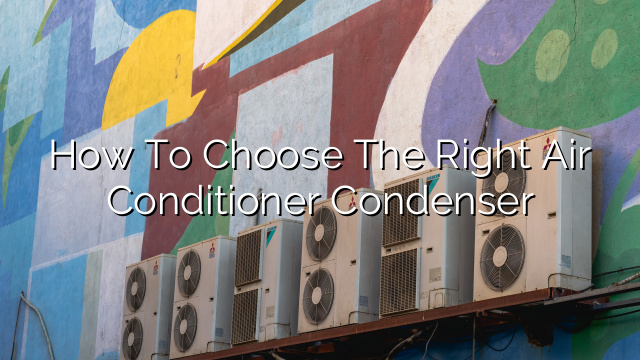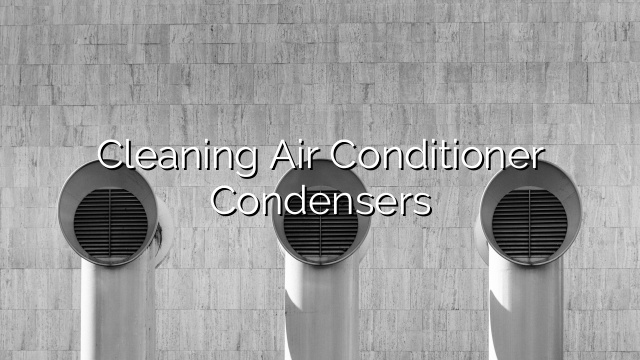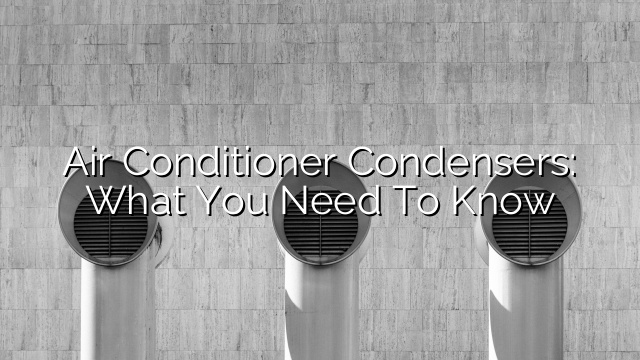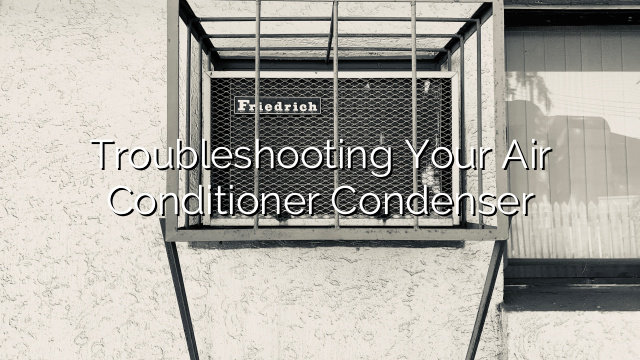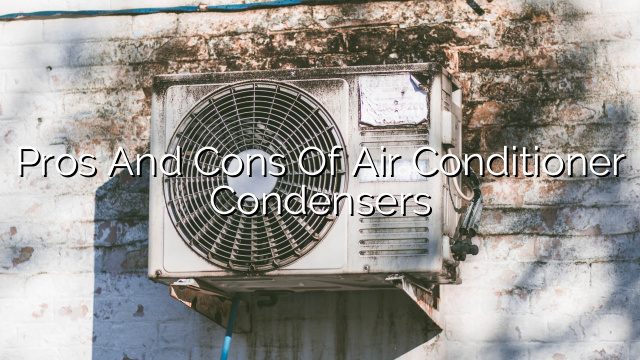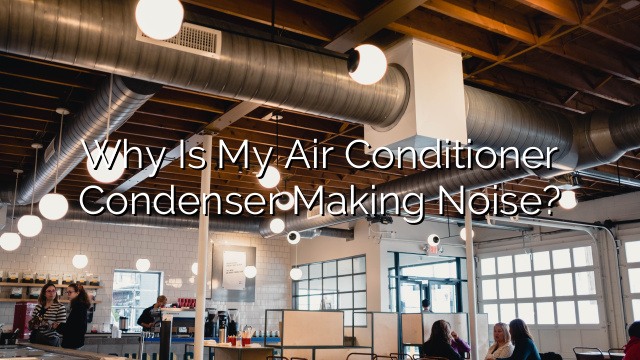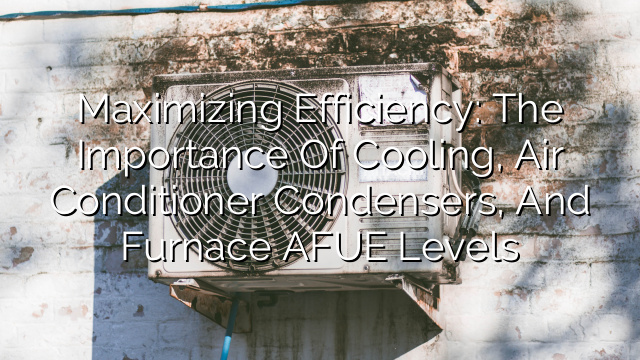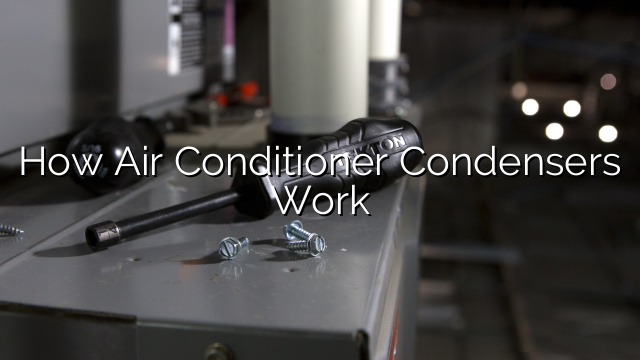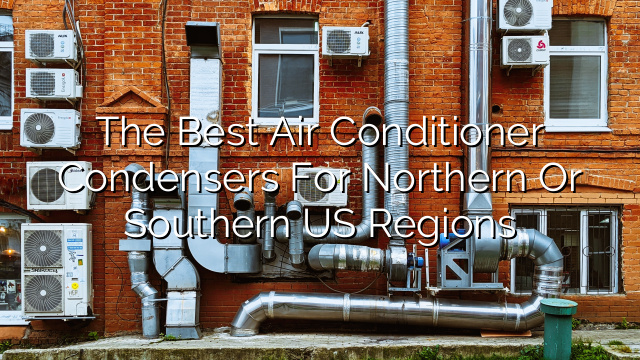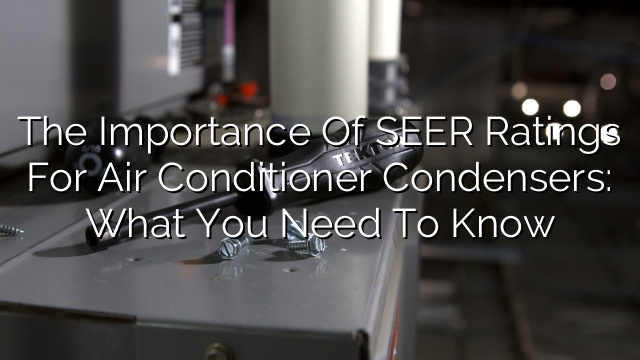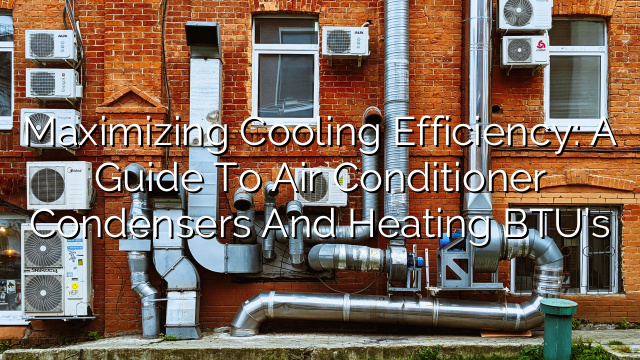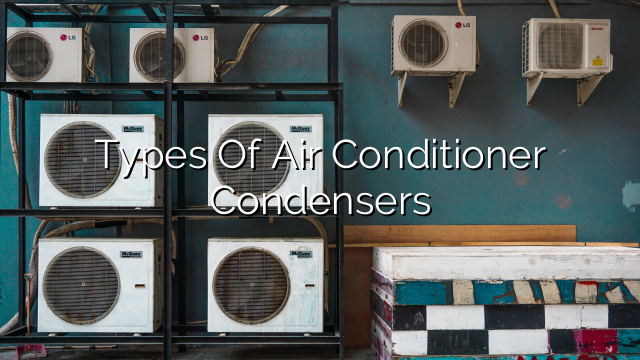Understanding Air Conditioner Condensers and System Tonnage
When it comes to cooling your home or office, air conditioner condensers play a crucial role. The condenser is responsible for releasing heat from inside the building to the outside, allowing for a cooler and more comfortable space. Understanding how condensers work and choosing the right system tonnage is essential for an efficient and effective cooling system. In this complete guide, we will walk you through the basics of air conditioner condensers and system tonnage, providing all the information you need to make an informed decision for your cooling needs.
What is an Air Conditioner Condenser?
An air conditioner condenser is a critical component of an air conditioning system. It is usually located outside the building and works in conjunction with the evaporator coil inside. The condenser is responsible for releasing the heat absorbed from inside the building to the outside environment. It accomplishes this through a process called refrigeration cycle, where refrigerant is compressed and circulated throughout the system.
How does the Condenser Work?
The condenser works by compressing the refrigerant gas, converting it into a high-pressure and high-temperature state. As the hot refrigerant passes through the condenser coils, a fan blows air over the coils, allowing heat to dissipate into the surrounding atmosphere. This process cools down the refrigerant, turning it back into a liquid state. The cooled liquid refrigerant then returns to the evaporator coil inside the building, where it absorbs heat and starts the cycle again.
What is System Tonnage?
System tonnage refers to the cooling capacity of an air conditioning system. It is a unit of measurement that determines how much heat the system can remove from a building in one hour. The higher the system tonnage, the greater the cooling capacity.
The tonnage of an air conditioning system is determined by the size of the space it needs to cool. It is calculated based on the square footage of the area and factors such as insulation levels, sun exposure, and the number of occupants. Generally, a rule of thumb is to have 1 ton of cooling capacity for every 600-700 square feet of space.
Choosing the Right System Tonnage
Choosing the right system tonnage for your cooling needs is crucial for energy efficiency and optimal performance. An undersized system may struggle to cool the space, leading to increased energy consumption and discomfort. On the other hand, an oversized system may cool the space too quickly, resulting in short-cycling and reduced humidity control.
To determine the right system tonnage, it is best to consult with a professional HVAC technician. They will consider factors such as the size of the space, heat load calculation, and other specific requirements to recommend the ideal system tonnage for your cooling needs.
Benefits of Proper System Tonnage
Having the right system tonnage in your air conditioning system offers several benefits, including:
- Energy efficiency: An appropriately sized system will cool the space efficiently, reducing energy consumption and lowering utility bills.
- Optimal performance: A properly sized system will maintain a consistent and comfortable temperature throughout the building.
- Longer lifespan: An accurately sized system will operate within its intended capacity, reducing strain and extending its lifespan.
- Better humidity control: A correctly sized system will effectively remove excess humidity from the air, creating a more comfortable indoor environment.
FAQs
- How often should I clean my condenser coils? It is recommended to clean your condenser coils at least once a year. However, if your air conditioning system is located in an area with high levels of dust, debris, or vegetation, more frequent cleaning may be necessary.
- Can I install a larger condenser to improve cooling? Installing a larger condenser without considering other factors, such as the capacity of the evaporator coil and the size of the ductwork, can lead to inefficient cooling and increased energy consumption. It is best to consult with a professional HVAC technician to determine the right system tonnage for your specific needs.
- How can I improve the efficiency of my condenser? Regular maintenance, such as cleaning the coils, replacing air filters, and checking refrigerant levels, can improve the efficiency of your condenser. Additionally, ensuring proper airflow around the condenser unit and shading it from direct sunlight can also help.
- What is the lifespan of an air conditioner condenser? The lifespan of an air conditioner condenser can vary depending on factors such as usage, maintenance, and the quality of the unit. On average, a well-maintained condenser can last 10-15 years.
- Is it necessary to cover the condenser during the winter? Covering the condenser during the winter is not necessary, as modern condensers are designed to withstand harsh weather conditions. However, it is essential to ensure the condenser is free from debris and vegetation that could hinder airflow.

